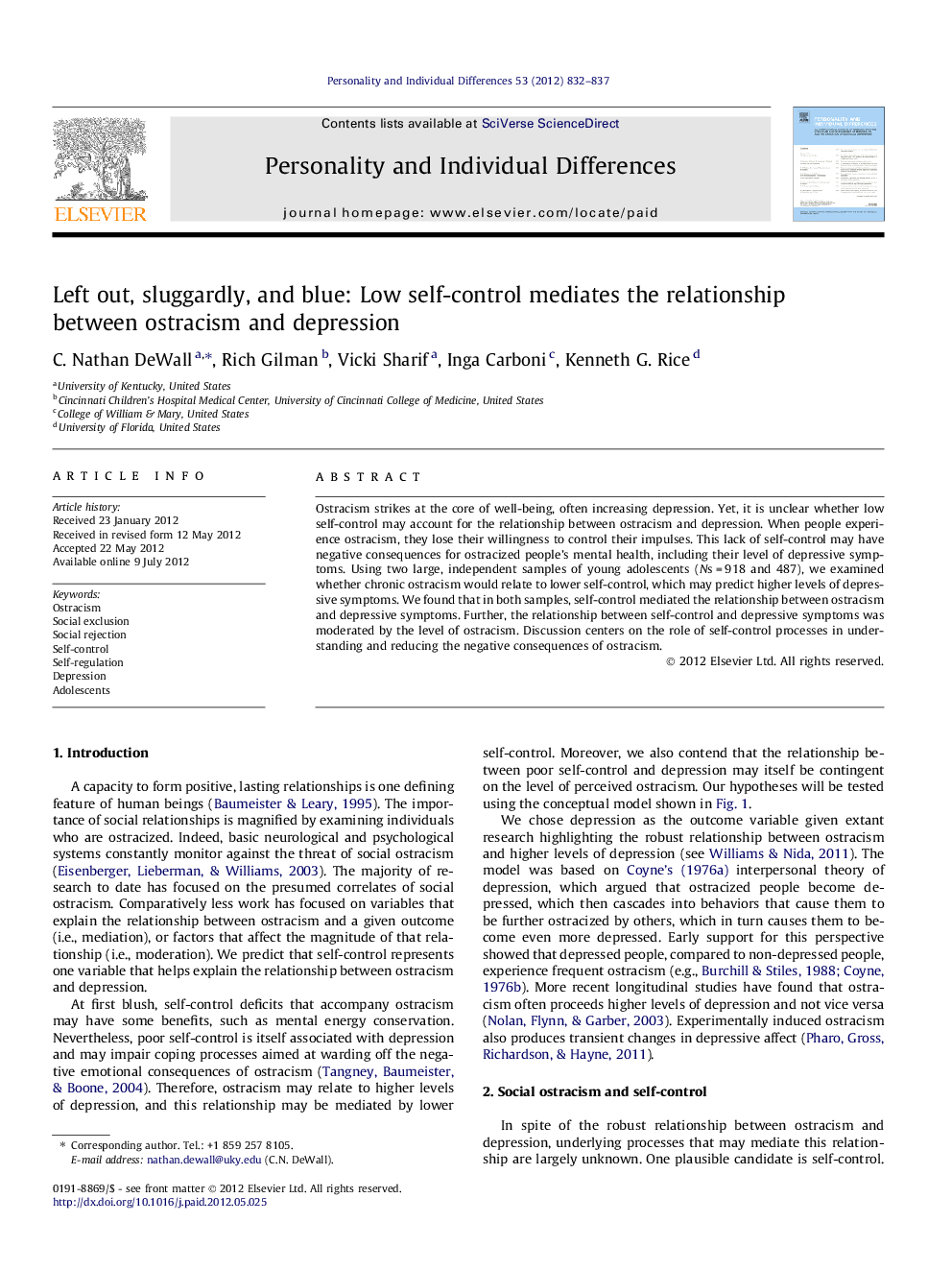| Article ID | Journal | Published Year | Pages | File Type |
|---|---|---|---|---|
| 891375 | Personality and Individual Differences | 2012 | 6 Pages |
Ostracism strikes at the core of well-being, often increasing depression. Yet, it is unclear whether low self-control may account for the relationship between ostracism and depression. When people experience ostracism, they lose their willingness to control their impulses. This lack of self-control may have negative consequences for ostracized people’s mental health, including their level of depressive symptoms. Using two large, independent samples of young adolescents (Ns = 918 and 487), we examined whether chronic ostracism would relate to lower self-control, which may predict higher levels of depressive symptoms. We found that in both samples, self-control mediated the relationship between ostracism and depressive symptoms. Further, the relationship between self-control and depressive symptoms was moderated by the level of ostracism. Discussion centers on the role of self-control processes in understanding and reducing the negative consequences of ostracism.
► Poor self-control mediates the relationship between ostracism and depression. ► Consistent results found across two large, independent samples. ► Ostracism also moderated the relationship between self-control and depression.
